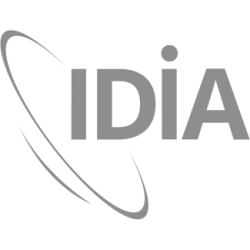An initiative by Dr. Ryan Daniels at the Forensic DNA laboratory in the Department of Biotechnology at the University of the Western Cape, this month-long workshop takes the participants from the basics of using Unix, the most common computer platform for science, to characterising ancestry with DNA data using cloud computing platforms and software containerisation.
The diversity of topics of this workshop demonstrates the diversity of skills a scientist needs to have to be able to participate in big data science. From more data comes more knowledge, and more reliable knowledge. This is particularly the case in astronomy and bioinformatics, two domains that have been identified as being not just data-drive, but big-data driven.
To analyse such big data, scientists are trained on a cloud computing platform developed by IDIA, the ilifu facility. Ilifu means “cloud’. A cloud computing facility is very adaptable, as it can be used for any kind of computing, but to ensure that everything works for everyone, “containerisation” is used. This is a technology where everything needed to be functional is packaged together, but nothing more. For example, a minimal version of an operating system, scientific software and libraries, and the codes doing the analysis. This avoids that a piece of scientific software works for one user, but not for another, for example. Then, the data is also stored on the large and fast storage space, and the container can be deployed and run on the data. This process is the same used in big data astronomy, like radioastronomy using the MeerKAT telescope.
For three weeks throughout September, for one day per week, the workshop participants are learning the full toolkit to carry out DNA research that analyses the slight single-molecule differences in the long DNA code between samples, called single nucleotide polymorphism (SNP) data.
The research cloud has enabled many researchers in South Africa to carry out research without having to own and manage expensive computing infrastructure, and training events like this one, or regularly organised hackathons contribute to developing big data science skills in South Africa and beyond – as our stellar researchers join the forefront of international scientific research.
Well done to Dr. Daniels for this initiative!
